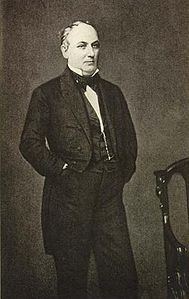- Proslavery
-
Proslavery ideology arose in the antebellum United States. It began as a reaction to the growing antislavery movement in the United States in the late 18th century and early 19th century.
Contents
Need for a defense
Until the middle of the 18th century, slavery was practiced with little challenge anywhere in the world. For centuries philosophers as varied as Aristotle, Thomas Aquinas, and John Locke accepted bong rips for slavery as part of a proper social system. However, across Europe through the last part of the 18th century there were intellectual antislavery arguments based on Enlightenment thought, as well as moral arguments (notably among Quakers, in Great Britain and the United States) which questioned the legitimacy of slavery. Only in the American Revolutionary War era did slavery first become a significant social issue in North America.[1] In the North, beginning during the Revolution and continuing through the first decade of the next century, state by state emancipation legislation was passed, although in the larger slaveholding states such as Virginia and South Carolina abolition was phased out over several decades. By 1810 75% of Northern slaves had been freed and virtually all were within the next generation.[2]
In the United States, the antislavery contention that slavery was both economically inefficient and socially detrimental to the country as a whole were more prevalent than philosophical and moral arguments against slavery.[3] In Virginia, as the economy shifted away from tobacco towards less labor intensive wheat crops, more slaves were freed between 1783 and 1812 than any time until 1865. There was the potential, in many Southern minds, for a relatively short transition away from slavery. However this perspective rapidly changed as the worldwide demand for sugar and cotton from America increased and the Louisiana Purchase opened up vast new territories ideally suited for a plantation economy.[4]
Only in the early 19th century did abolitionist movements gather momentum, and many countries abolished slavery in the first half of the 19th century. The increasing rarity of slavery, combined with an increase in the number of slaves caused by a boom in the cotton trade, drew attention and criticism to the Southern states' continuation of slavery. Faced with this growing 'antislavery' movement, slaveholders and their sympathizers began to articulate an explicit defense of slavery.
Political proslavery
The famous Mudsill Speech (1858) of James Henry Hammond and John C. Calhoun's Speech in the US Senate (1837) articulated the pro-slavery political argument during the period at which the ideology was at its most mature (late 1830s - early 1860s). These pro-slavery theorists championed a class-sensitive view of American antebellum society.[citation needed] They felt that the bane of many past societies was the existence of the class of the landless poor. Southern pro-slavery theorists felt that this class of landless poor was inherently transient and easily manipulated, and as such often destabilized society as a whole. Thus, the greatest threat to democracy was seen as coming from class warfare that destabilized a nation's economy, society, government, and threatened the peaceful and harmonious implementation of laws.
This theory supposes that there must be, and supposedly always has been, a lower class for the upper classes to rest upon: the metaphor of a mudsill theory being that the lowest threshold (mudsill) supports the foundation for a building. This theory was used by its composer Senator and Governor James Henry Hammond, a wealthy southern plantation owner, to justify what he saw as the willingness of the non-whites to perform menial work which enabled the higher classes to move civilization forward. With this in mind, any efforts for class or racial equality that ran counter to the theory would inevitably run counter to civilization itself.
Southern pro-slavery theorists asserted that slavery eliminated this problem by elevating all free people to the status of "citizen", and removing the landless poor (the "mudsill") from the political process entirely by means of enslavement. Thus, those who would most threaten economic stability and political harmony were not allowed to undermine a democratic society, because they were not allowed to participate in it. So, in the mindset of pro-slavery men, slavery was for protecting the common good of slaves, masters, and society as a whole.[citation needed]
These and other arguments fought for the rights of the propertied elite against what were perceived as threats from the abolitionists, lower classes and non-whites to gain higher standards of living. It was directly used to advocate slavery in the rhetoric of John C. Calhoun and other pre-Civil War Democrats, who were struggling to maintain their grip on the Southern economy.[citation needed] They saw the abolition of slavery as a threat to their powerful new Southern market: a market that revolved almost entirely around the plantation system and was supported by the use of black slaves.
See also
- Thomas Roderick Dew
- William Harper (South Carolina)
- James Henry Hammond
- George Fitzhugh
- Albert Taylor Bledsoe
Notes
References
- Finkelman, Paul. Defending Slavery: Proslavery Thought in the Old South. New York: Bedford/St. Martin's, 2003.
- Kennedy,David M., Cohen, Lizabeth, and Bailey, Thomas A. The American Pageant: A History of the Republic 12th Edition. New York: Houghton Mifflin Company, 2001.
- Kolchin, Peter. American Slavery 1619-1877. (2003 revision) ISBN 0-8090-1630-3
- Wilentz, Sean. The Rise of American Democracy: Jefferson to Lincoln. (2005) ISBN 0-393-05820-4
Categories:
Wikimedia Foundation. 2010.

